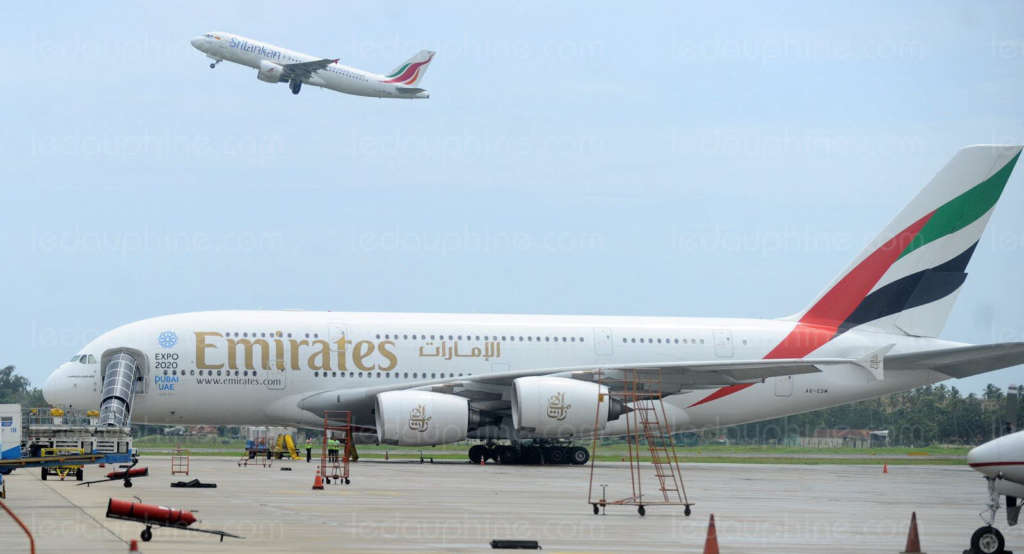Dubai- Emirates Group has said that it made profits of 2.5 billion dirhams (670 million dollars) in its last fiscal year ending in March, a 70 percent fall.
The Group’s revenue reached 94.7 billion dirhams (US$ 25.8 billion), an increase of 2 percent over last year’s results, and the Group’s cash balance decreased by 19 percent to 19.1 billion dirhams (US$ 5.2 billion) mainly due to the repayment of two bonds on maturity and ongoing high investments into its fleet and aircraft related assets.
The group said it recorded its 29th consecutive year of profit and continued to improve its business despite the turmoil that the airline industry witnessed throughout the year.
In line with the current business climate and to support the future investment plans of the Group, no dividend payment will be made to the Investment Corporation of Dubai (ICD) for 2016-2017, it said.
Sheikh Ahmed bin Saeed Al Maktoum, Chairman and Chief Executive, Emirates Airline and Group, said: “Emirates and dnata have continued to deliver profits and grow the business, despite 2016-17 having been one of our most challenging years to date.
“Over the years, we have invested to build our business capabilities and brand reputation. We now reap the benefits as these strong foundations have helped us to weather the destabilizing events which have impacted travel demand during the year – from the Brexit vote to Europe’s immigration challenges and terror attacks, from the new policies impacting air travel into the US, to currency devaluation and funds repatriation issues in parts of Africa, and the continued knock-on effect of a sluggish oil and gas industry on business confidence and travel demand.”
In the last fiscal year, the Group collectively invested 13.7 billion dirhams (US$ 3.7 billion) in new aircraft and equipment, the acquisition of companies, modern facilities, the latest technologies, and staff initiatives.
Sheikh Ahmed said: “These investments will further strengthen our resilience, even as we extend our competitive edge, and adapt our businesses to the volatile business climate and fast changing consumer expectations.
“We remain optimistic for the future of our industry,” he said.
“Emirates and dnata will stay attuned to the events and trends that impact our business, so that we can respond quickly to opportunities and challenges. We will also progress on our digital transformation journey. We are redesigning every aspect of how we do business, powered by an entirely new suite of technologies. Our aim is to deliver more personalized customer experiences, and seamless customer journeys, and make our operations and back-office functions even more efficient,” the chairman added.
Across its more than 80 subsidiaries and companies, the Group increased its total workforce by 11 percent to over 105,000-strong, representing over 160 different nationalities.
Emirates’ total passenger and cargo capacity crossed the 60 billion mark, to 60.5 billion ATKMs at the end of 2016-17, cementing its position as the world’s largest international carrier. The airline increased capacity during the year by 4.1 billion Available Ton Kilometers (ATKMs), or 7 percent over 2015-16.
Emirates received 35 new aircraft, its highest number during a financial year, comprising of 19 A380s and 16 Boeing 777-300ERs. At the same time 27 older aircraft were phased out, bringing its total fleet count to 259 at the end of March. This fleet roll-over involving 62 aircraft was the largest program it has ever managed in a year, and it brought Emirates’ average fleet age down significantly to 63 months, compared with 74 months last year, and the industry average of 140 months.
